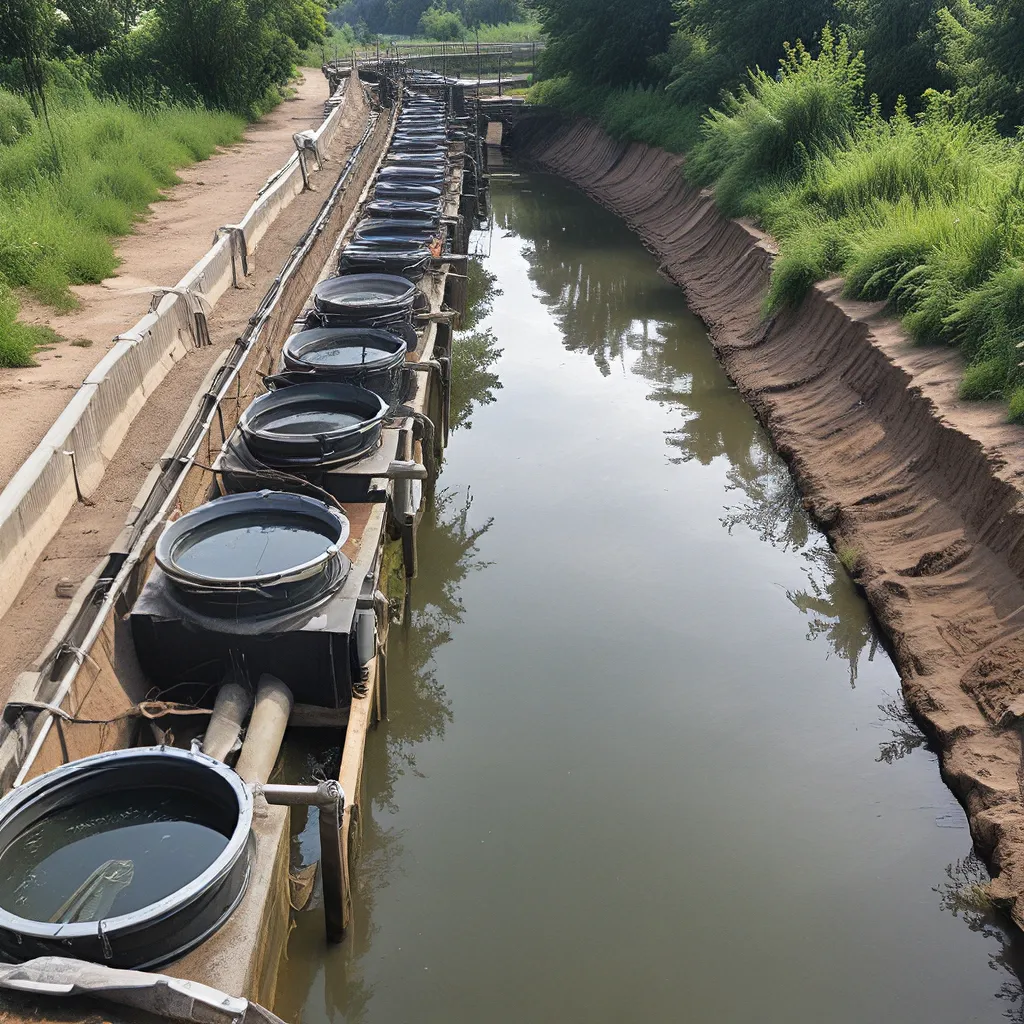
As someone passionate about environmental sustainability, I’ve always been fascinated by the critical role wastewater treatment plays in achieving the United Nations’ Sustainable Development Goals (SDGs). It’s a complex and often overlooked area, but one that holds the key to unlocking a more prosperous and equitable future for all.
Let me take you on a journey through the intricate web of connections between wastewater management and the SDGs. It’s a captivating story that highlights the transformative power of innovative solutions and the importance of collaborative efforts across sectors.
The Water-Energy-Health Nexus
At the heart of the matter lies SDG 6: Clean Water and Sanitation. This goal is central to ensuring access to safe and affordable drinking water for all, as well as providing adequate sanitation and hygiene. But the reach of wastewater treatment extends far beyond this single target.
Emerging research has shed light on the intricate water-energy-health nexus, where wastewater management plays a crucial role. By recovering resources from wastewater, we can generate renewable energy, reducing our reliance on fossil fuels and contributing to SDG 7: Affordable and Clean Energy.
Moreover, effective wastewater treatment safeguards public health by mitigating the spread of waterborne diseases, aligning with SDG 3: Good Health and Well-being. This is particularly crucial in vulnerable communities, where inadequate sanitation infrastructure has long been a persistent challenge.
Sustainable Urban Development
But the impact of wastewater treatment extends beyond the immediate water-energy-health domains. It also plays a pivotal role in SDG 11: Sustainable Cities and Communities.
As our world rapidly urbanizes, the demand for efficient and eco-friendly wastewater management systems is growing. Conventional wastewater treatment plants, often energy-intensive and complex, can be impractical for many rural and under-resourced communities. Researchers at the University of Minnesota are exploring the potential of low-tech wastewater treatment technologies, such as wastewater treatment ponds, to bridge this gap and improve sanitation globally.
By leveraging these innovative solutions, we can promote sustainable urban development and ensure that no community is left behind in the quest for clean water and sanitation. This, in turn, contributes to the overarching goal of building inclusive, safe, resilient, and sustainable cities and settlements.
Preserving the Environment
But the benefits of wastewater treatment go even further, intertwining with the broader environmental sustainability agenda.
Proper wastewater management is essential for SDG 14: Life Below Water and SDG 15: Life on Land. By preventing the discharge of untreated effluents into our waterways and ecosystems, we can safeguard the delicate balance of aquatic life and terrestrial habitats.
Research has shown that wastewater treatment can also play a role in climate change mitigation and adaptation, aligning with SDG 13: Climate Action. By recovering resources and reducing energy consumption, we can lower greenhouse gas emissions and build resilience to the impacts of a changing climate.
Fostering Partnerships and Collaboration
Achieving these ambitious SDG targets requires a concerted effort from all stakeholders – governments, businesses, civil society, and research institutions. Partnerships and collaboration are essential to drive innovation, leverage expertise, and ensure equitable and sustainable solutions.
The University of Minnesota’s Sustainable Development Goals Initiative is a shining example of this collaborative approach. By bringing together researchers from diverse disciplines, they are exploring innovative wastewater treatment technologies, addressing urban greenspace inequities, and tackling gender-based violence in refugee communities – all in pursuit of the SDGs.
The Path Forward
As I reflect on the immense potential of wastewater treatment to catalyze sustainable development, I’m reminded of the words of Paige Novak, a researcher at the University of Minnesota: “Wastewater treatment protects the environment and human health.” This simple yet profound statement encapsulates the far-reaching impact of this often-overlooked field.
The road ahead is not without its challenges, but I’m inspired by the ingenuity and dedication of those working to align wastewater treatment with the Sustainable Development Goals. From low-tech solutions that empower communities to data-driven insights that inform policy, the possibilities are endless.
As we continue to navigate this complex landscape, I encourage you to explore the services and expertise of organizations like Alpha Wastewater, who are at the forefront of sustainable wastewater management. Together, we can build a future where clean water, renewable energy, and thriving ecosystems are the foundation of a more just and equitable world.
So, what are we waiting for? Let’s dive into the depths of wastewater treatment and uncover the transformative power it holds for our shared sustainable development journey.